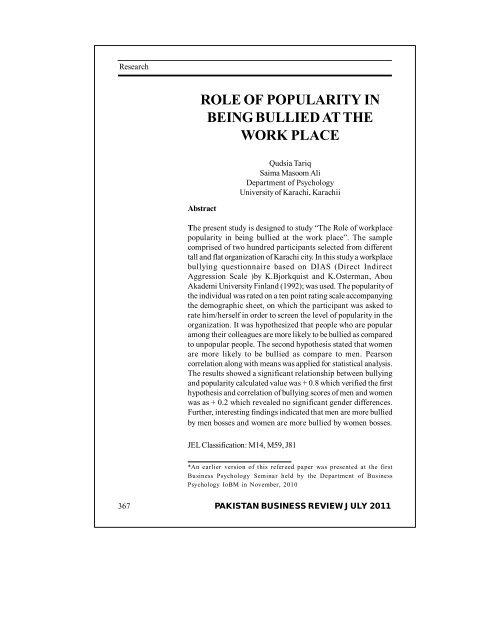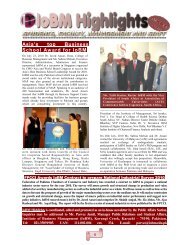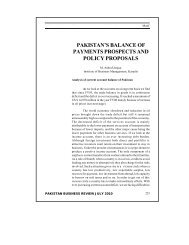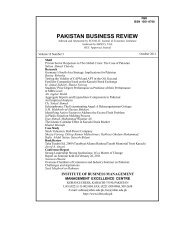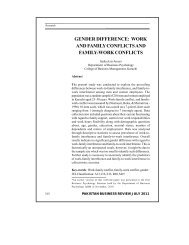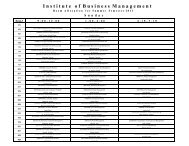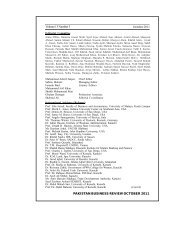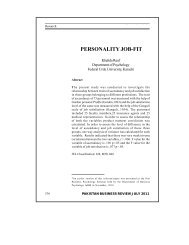PAKISTAN BUSINESS REVIEW - Institute of Business Management
PAKISTAN BUSINESS REVIEW - Institute of Business Management
PAKISTAN BUSINESS REVIEW - Institute of Business Management
Create successful ePaper yourself
Turn your PDF publications into a flip-book with our unique Google optimized e-Paper software.
Research<br />
Role <strong>of</strong> Popularity in Being Bullied at the Work Place<br />
ROLE OF POPULARITY IN<br />
BEING BULLIED AT THE<br />
WORK PLACE<br />
Abstract<br />
Qudsia Tariq<br />
Saima Masoom Ali<br />
Department <strong>of</strong> Psychology<br />
University <strong>of</strong> Karachi, Karachii<br />
The present study is designed to study “The Role <strong>of</strong> workplace<br />
popularity in being bullied at the work place”. The sample<br />
comprised <strong>of</strong> two hundred participants selected from different<br />
tall and flat organization <strong>of</strong> Karachi city. In this study a workplace<br />
bullying questionnaire based on DIAS (Direct Indirect<br />
Aggression Scale )by K.Bjorkquist and K.Osterman, Abou<br />
Akademi University Finland (1992); was used. The popularity <strong>of</strong><br />
the individual was rated on a ten point rating scale accompanying<br />
the demographic sheet, on which the participant was asked to<br />
rate him/herself in order to screen the level <strong>of</strong> popularity in the<br />
organization. It was hypothesized that people who are popular<br />
among their colleagues are more likely to be bullied as compared<br />
to unpopular people. The second hypothesis stated that women<br />
are more likely to be bullied as compare to men. Pearson<br />
correlation along with means was applied for statistical analysis.<br />
The results showed a significant relationship between bullying<br />
and popularity calculated value was + 0.8 which verified the first<br />
hypothesis and correlation <strong>of</strong> bullying scores <strong>of</strong> men and women<br />
was as + 0.2 which revealed no significant gender differences.<br />
Further, interesting findings indicated that men are more bullied<br />
by men bosses and women are more bullied by women bosses.<br />
JEL Classification: M14, M59, J81<br />
*An earlier version <strong>of</strong> this refereed paper was presented at the first<br />
<strong>Business</strong> Psychology Seminar held by the Department <strong>of</strong> <strong>Business</strong><br />
Psychology IoBM in November, 2010<br />
367<br />
<strong>PAKISTAN</strong> <strong>BUSINESS</strong> <strong>REVIEW</strong> JULY 2011


